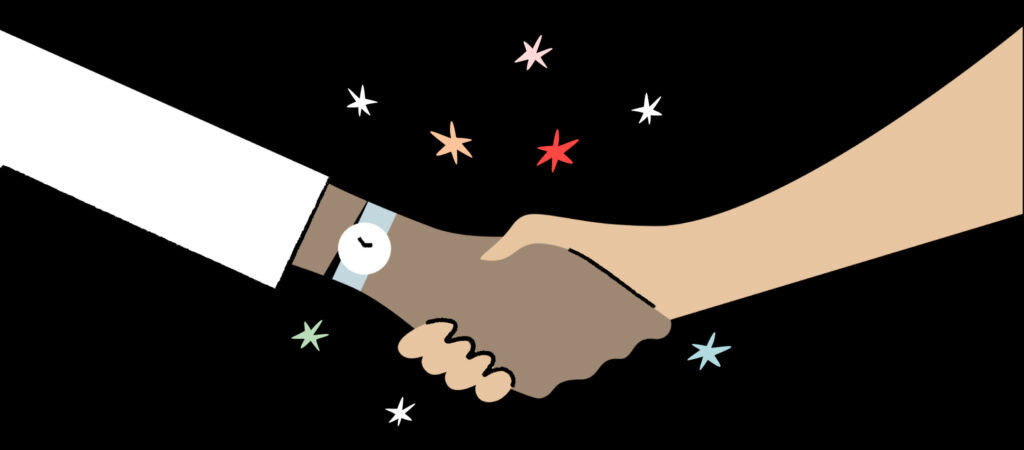What Our Doctors Wish You Knew
Here are the health truths that our medical providers really, really want patients to know about taking care of themselves.
While you don’t interact with them face-to-face, we want to make sure you know that there are real live medical providers delivering your care through Nurx — and they want 2022 to be a healthy, happy year for you. To that end, they have some more advice (beyond what we published in December). These are the tips and truths that our medical team wishes every Nurx patient knew:
“While vaccination is one of the most important strategies in reducing the spread of COVID, staying healthy and well overall may reduce your chance of contracting the disease in the first place, and reduce your chance of serious illness. Healthy lifestyle is important for so many reasons!” — Casandra Cashman, MD
“Movement is medicine—both for the body and mind. Studies have shown that walking for 2.5 hours a week (just 21 minutes a day) can cut your risk of heart disease by 30%, while improving mood and relieving stress. And it is a great way to connect socially with others. Instead of after-work cocktails, consider meeting a friend for a walk outside to both socialize and improve your health! — Kendra Broussard, WHNP-BC
“Sleep is not only good for our bodies, it’s essential to our mental well-being. Our brains need quality sleep to refresh and recuperate from the day’s activities, and not getting enough quality sleep can lead to poor mental health. When we neglect our sleep, we can become irritable, easily distracted and have decreased concentration. Make sleep a priority by setting aside the appropriate time to rest and by developing good sleep hygiene. You can do this by limiting screen time before sleep, using your bedroom for sleep and sex only, removing the TV from your bedroom and using apps that promote healthy sleep habits.” — Adrienne Robertson, MD
“Check your moles! One in five people will develop skin cancer by the age of 70. In your 20s-30s you should start having a yearly mole check to look for abnormal moles. However, if you’re in the sun a lot, have a family history of skin cancer, or have irregular moles, you should be checked sooner. Melanoma is the 7th most common type of cancer for young adults, and it is preventable. To prevent it, stay in the shade, wear clothing that covers your arms and legs, wear a hat with a wide brim to shade your face, head, ears, and neck, wear sunglasses that wrap around and block both UVA and UVB rays, and always use a broad-spectrum sunscreen with a sun protection factor (SPF) of 15 or higher.” — Kristine Cooley, APRN
“Even in the midst of Covid we need to remember that heart disease causes the most deaths each year. Get your blood sugar, cholesterol, and blood pressure checked. Losing just ten pounds can reduce your heart disease risk!” — Neil Zlatniski, MD
“Talk to your medical providers, to be sure that you are receiving correct, medically accurate information instead of the many theories and misinformation that are circulated through the media. We are here for you!” — Nimret Dev, DO
“You may not hear about breast self-exams as much as you once did, but they are still important. Especially since during Covid you may have missed doctor appointments, do self-exams so you know what’s normal, and isn’t, for your breasts. Take the time to ensure your own breast care, and see a doctor if you feel something concerning.” — Emily Rymland, DNP, FNP-C, Nurx Director of Clinical Operations
“It’s important to identify the barriers that keep us from doing what we know is good for us – whether it’s exercising, getting a therapist or taking a medication. Once we know what our barriers are, we can start to slowly break them down or bypass them. It sounds so easy, but we all know this can be complicated. Take the time to think honestly about your priorities and behaviors, and then make a plan to get to your goal. Don’t forget to celebrate ALL progress along the way. If you are in a situation where the barriers are just too big or many, it’s ok to ask for help – just that you’re thinking about this is a big deal.” — Huong Tran, MD
This blog provides information about telemedicine, health and related subjects. The blog content and any linked materials herein are not intended to be, and should not be construed as a substitute for, medical or healthcare advice, diagnosis or treatment. Any reader or person with a medical concern should consult with an appropriately-licensed physician or other healthcare provider. This blog is provided purely for informational purposes. The views expressed herein are not sponsored by and do not represent the opinions of Nurx™.







